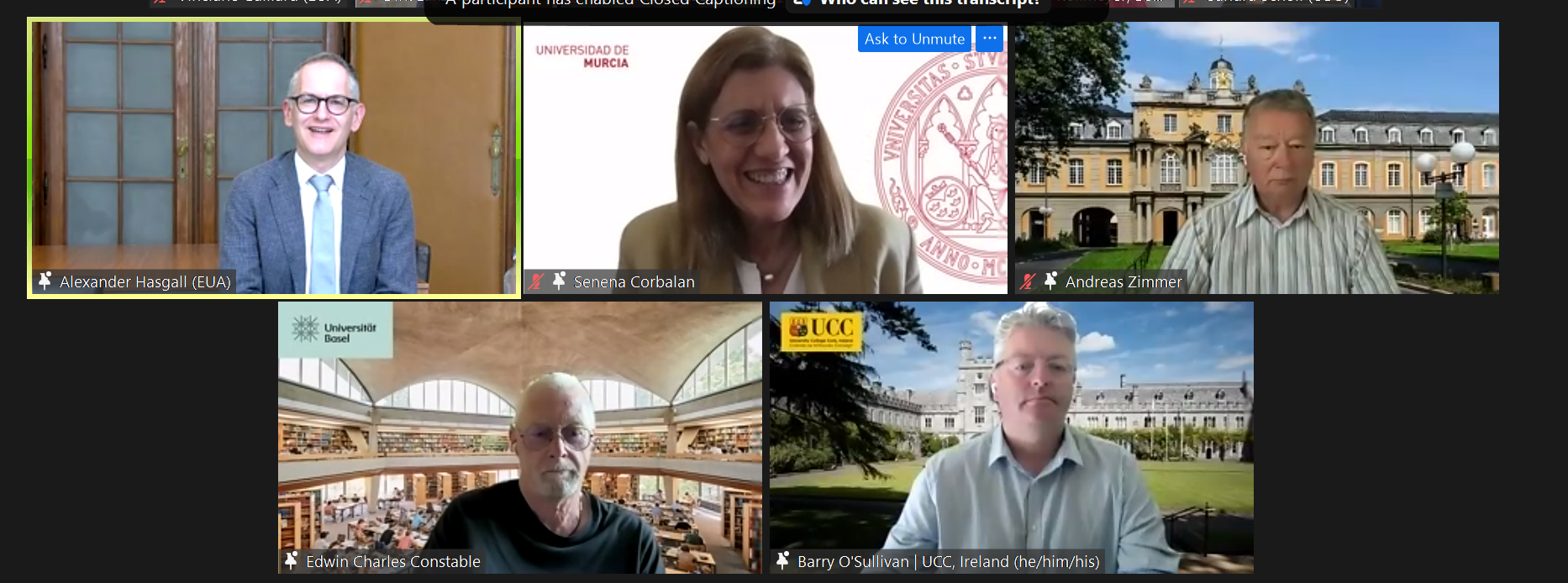BLOG
UNIVERSITY LEADERS EMBRACE AND TACKLE CHANGE
The European University Association hosted a productive leadership roundtable on research ethics, integrity, and the rapid pace of new technology
June 2023
On 31 May, 26 rectors and vice-rectors from 18 European countries met online for a leadership roundtable on institutional approaches to research ethics and integrity. The meeting was hosted by the European University Association in the context of the irecs project to gather the views of university leaders about the current challenges that they experience.
The scene was set by a panel discussion with experts on the matter, who agreed that technological change is not something new, but rather a matter of continuous adaptation. The panel was chaired by Alexander Hasgall (Head of EUA Council for Doctoral Education), with input from:
Senena Corbalán, Vice-Rector for Research, University of Murcia, and EUA R&I Strategy Group member;
Andreas Zimmer, Vice-Rector for Research and Early-Career Researchers, University of Bonn;
Edwin C. Constable, former Vice-Rector, University of Basel, and President, Expert Group on Scientific Integrity, Swiss Academies of Arts and Sciences;
and Barry O’Sullivan, Professor, University College Cork, and Vice Chair, European Commission High-Level Expert Group on AI (2018-2020).
They reflected on the need for universities to embrace change and make use of technological developments to tackle challenges that may arise. The discussion also revolved around the increasing need for science communication efforts and the mandate of universities to inform the wider society in a context of misinformation and growing mistrust in science. Regarding the concrete role of research ethics committees (RECs), a double mission was identified: mediating between society and researchers, as well as enabling the conduct of responsible research. The growing relevance of training for early-career researchers was highlighted, as well as the importance of protecting academic freedom when regulating the ethical aspects of research.
The panel discussion was followed by a debate among participants about the challenges they have encountered as university leaders regarding research ethics and integrity, their needs in view of a growing mistrust in science, and the integration of research ethics and integrity in the governance of universities. Participants pointed to the recognition of anticipation and science communication as key skills for researchers in the near future, the need for expectations management within the research community regarding ethics review processes, and the importance of engaging the wider public in how research is conducted and what its results imply.
The outcome of these discussions will feed into the drafting of recommendations for addressing ethical challenges from research in new technologies within the irecs project, to be published by the end of this year.
Authors:
European University Association

